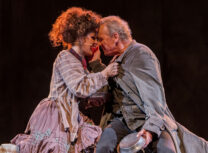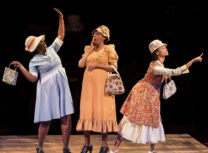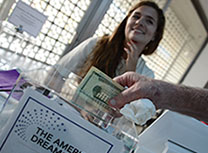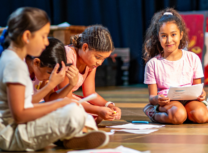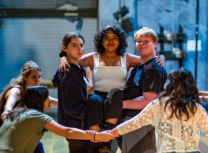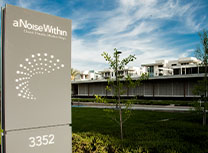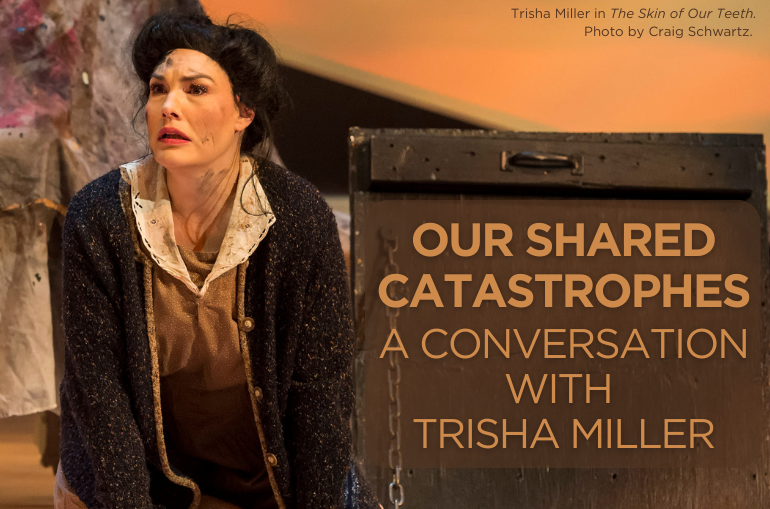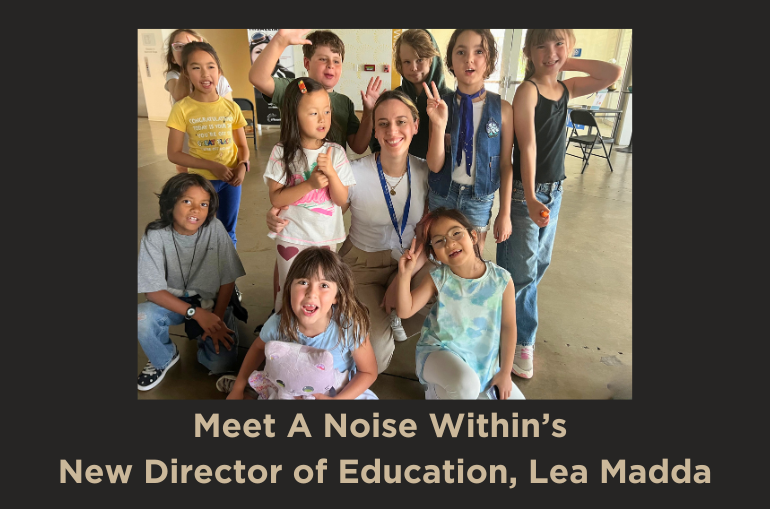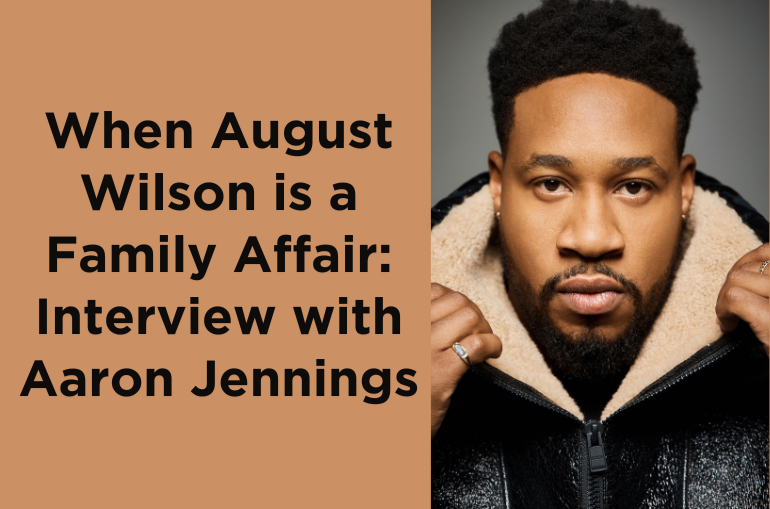Q&A with Alice in Wonderland Sound Designer

By A Noise Within
February 24, 2020
If you come to see Alice in Wonderland, listen closely for the work of our composer and sound designer, Josh Grondin. The sound design of Alice is key to transporting audience members, alongside Alice, into the curiouser and curiouser world of Wonderland.
What attracted you to Alice in Wonderland? What is most intriguing to you about this story?
The first thing to appeal to me about Alice was the idea of musically representing a world that is so free of rules. Creative parameters can be really helpful to give a project a focus and a vibe. I knew that in Wonderland though, we would be deciding what those rules would be ourselves, rather than Wonderland dictating the rules. Anything goes in Wonderland, and all ordinary logic is abandoned . As a result, we could go in any direction that appealed to our own artistic imagination. Quite freeing, and quite fun!
Another thing that really struck me as I began working on Alice is how rich the thematic elements of the book and play are. There’s a reason that people still want to tell this story over a hundred years on. One thing that’s great about Stephanie as a director is how she gets a dialogue going about theme. It really helped me take a look at the deeper meanings of Alice and at what things represent below face value. All those things help make my work better, because I can create from a deeper, more fundamental understanding of the piece.
What is the sound designer’s job? How did you begin your process for designing this show?
Sound design is representing the sounds of the world, often more “realistic sounds,” things like rain, the sound of a doorbell, etc. Score is the music that represents the emotion in a piece. In Alice, though, the line is a little bit blurred between those two things. Many of the sound design elements don’t feel realistic at all and can almost be more musical, a descending piano line to represent Alice shrinking, for example.
The first part of the process for this show was finding some of the main instruments for this world. I often work with synthesizers in my film scoring, but decided that the primary instrumentation for this would be more organic instruments that would then be processed in an inorganic way in the computer; the idea being that this story is a dream birthed in the mind of a child living in Victorian England, an era far before synthesizers. But in her dream, we could take these instruments she may have been familiar with and stretch and embellish them in ways that aren’t limited by the real world, with effects and processing that could’ve only been dreamed of back then.
How did you first become interested in sound design and music?
I’ve been playing music since I was a kid—classical piano and then playing in indie bands and finally getting into film scoring and producing artists. I started working with a theatre company called Public Assembly, first as a composer, but found myself filling the job for a sound designer as little things would come up. Music is definitely what I am more comfortable with, but being on unfamiliar ground creatively can be rewarding as well and a nice sign that you’re growing.
What elements of this play does the sound help tell the story?
Wonderland should be as rich and wondrous a world as possible, and sound is a great place to create some of that richness. Wonderland is also a very strange world, so I’m trying to create new sounds that hopefully feel unfamiliar to the listener and reflect that strangeness and magic. I’ve been approaching the songs with a sense of play, and making sure the humor in the lyrics is represented in the music as well. Another theme that interested me was the collision of childhood with the impending adult world, so some of the music has a bittersweet quality to represent that.
What piece of the show are you most excited to see come to life?
It’s still always a very magical feeling to see music I create become one element in such a large piece of art with so many other artists bringing their own style to it. You never know exactly what it’s going to feel like all together until it’s up and running. That’s an exciting feeling that just doesn’t get old. I’m also really curious to see how the shrinking and growing is represented—I’ve been working on the sound portions but I can’t wait to see how they do it on stage!
Get tickets to hear the sounds and see the sights of Alice in Wonderland today!
